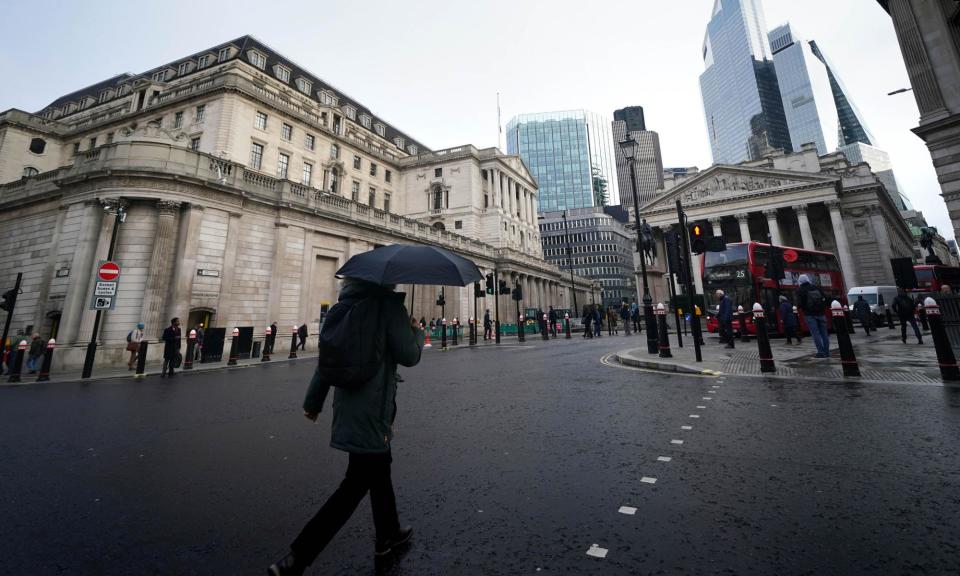UK bankers warned of ‘severe losses’ if they fail to monitor private equity exposures

UK banks are leaving themselves open to “severe, unexpected losses”, by failing to properly measure how exposed they are to the $8tn private equity industry, the Bank of England has warned.
In a speech on Tuesday, Rebecca Jackson, a senior executive at the central bank, said there was a “creeping sense of complacency” among lenders, who – despite a boom in loans and financing to the sector – had almost no ability to put together data “or even appreciate its crucial importance”.
She said the issue was partly due to the fact that banks had not previously been exposed to a private equity downturn.
Under the private equity model, large sums are borrowed from banks to finance the purchase of businesses, with profits from those businesses then relied on to make interest payments on the loans.
It means banks could be accruing huge and unintentional exposures to the private equity industry, which would be unable to immediately sell assets to pay down loans in a crisis.
“It’s not difficult to imagine a scenario, such as malpractice at a financial sponsor or the bankruptcy of multiple portfolio companies, where risk correlations increase significantly and liquidity evaporates, leaving banks open to severe, unexpected losses,” Jackson said in a speech to the City lobby group UK Finance on Tuesday. “This is a systemic risk too.”
The amount of assets managed by private equity businesses globally has grown at a rate of aabout 13% a year, Jackson explained, rising from $2tn (£1.6tn) dollars in 2012 to about $8tn last year. Individual funds have grown exponentially too, with the largest fund – run by the private equity business CVC – having set a record by raising $29bn last summer. Back in 2006, the record for fundraising stood at $15.6bn, Jackson explained.
The Bank of England said it was running out of patience, having raised similar concerns about the exposure of banks to risky loans after the collapse of the hedge fund Archegos – which left big banks such as Goldman Sachs and Credit Suisse nursing more than $10bn in losses – as well as the bond market crisis that followed the disastrous mini-budget led by the former prime minster Liz Truss in 2022.
“The risk of outsized, illiquid, and unintentionally concentrated exposures is something that we have been pointing out for some time now, and for which we have very little patience,” Jackson said.
The Bank of England has written to executives, giving UK lenders four months to get a handle on their dealings with private equity businesses, saying they will have to report back to the regulator by 30 August.
“The need for significant improvements in risk management is clear, and it’s clear that these need to happen now. It’s better, as Shakespeare said, to be three hours too soon than a minute too late,” Jackson said.

 Yahoo Finance
Yahoo Finance 